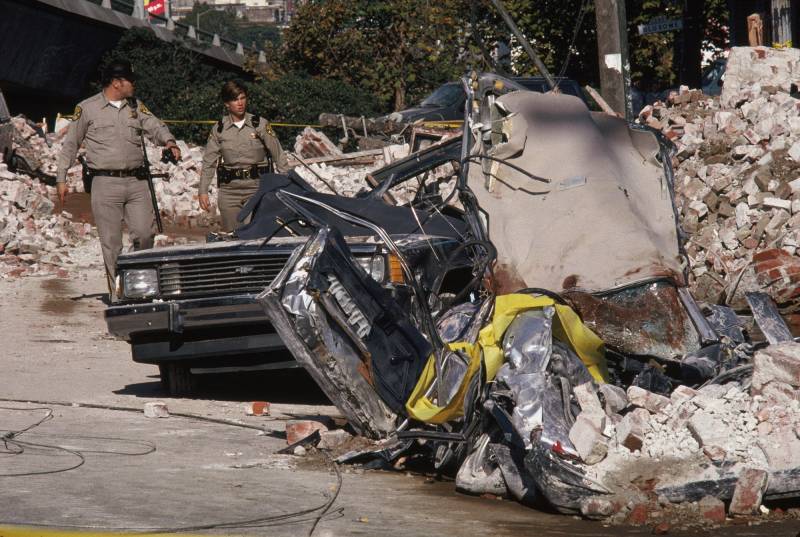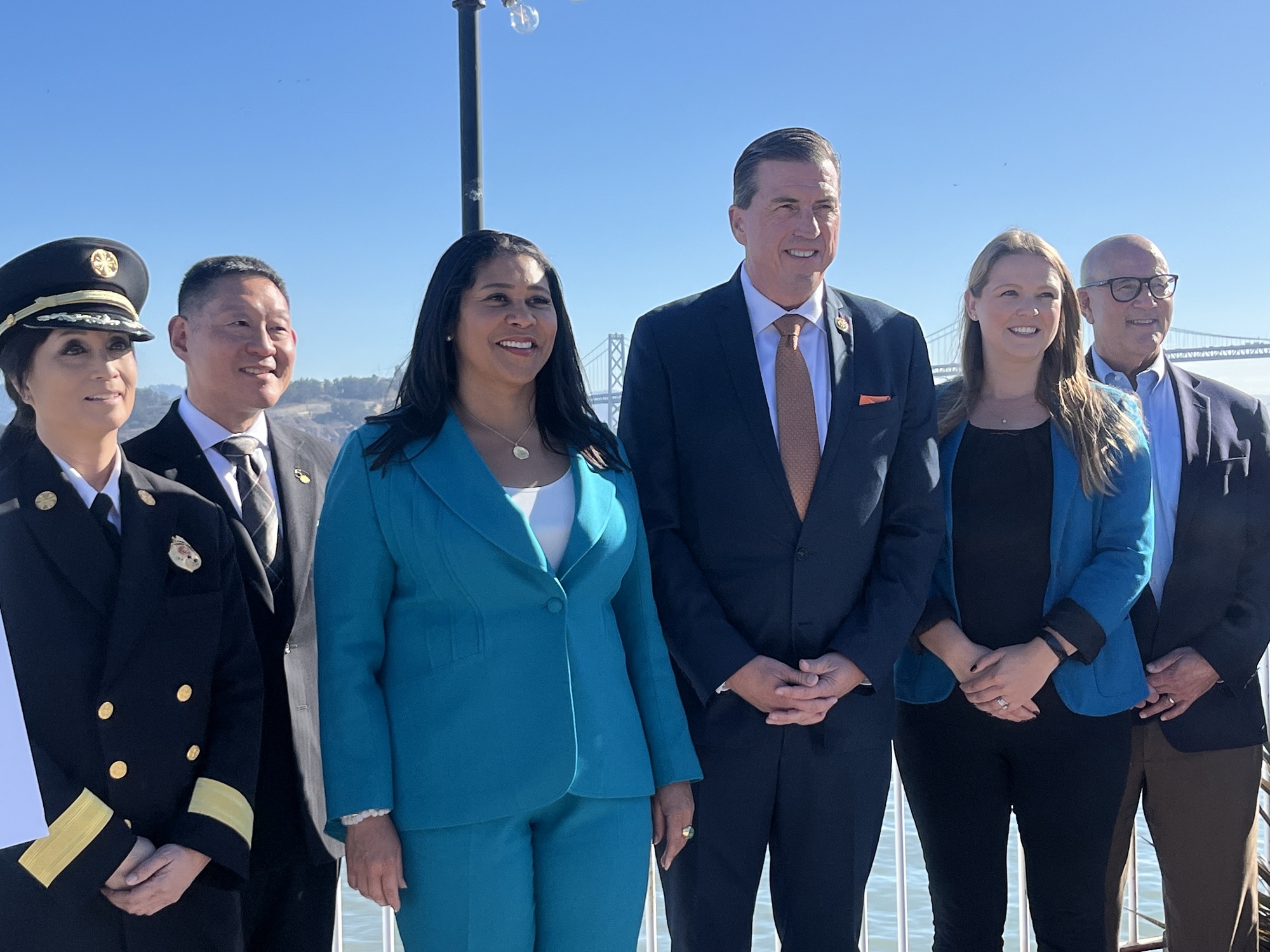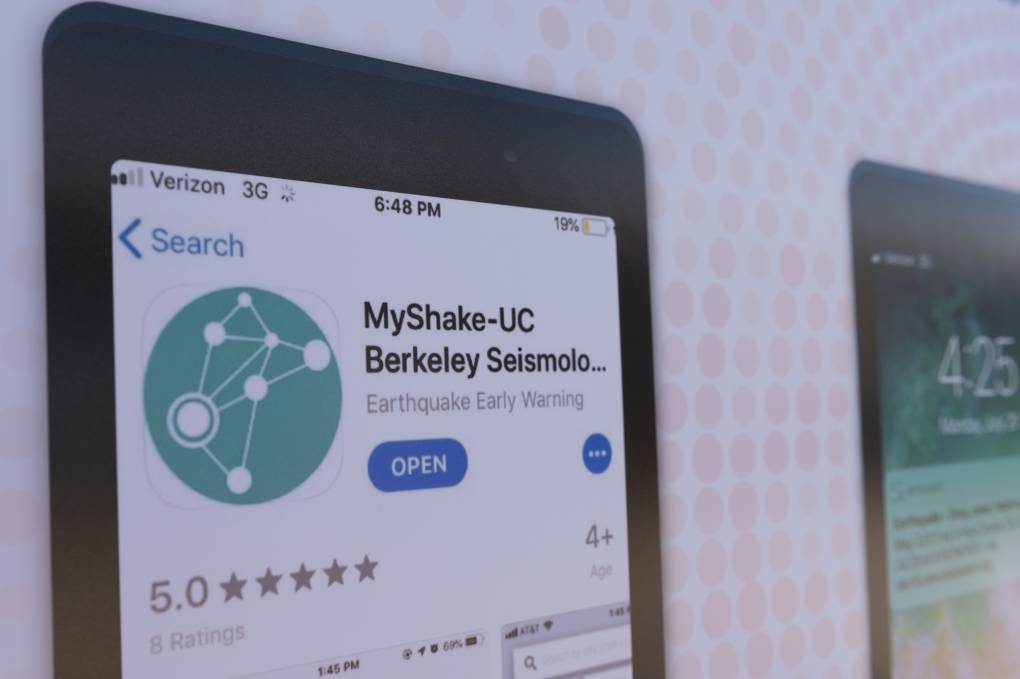The risk assessment would look at both the progress made to strengthen earthquake resilience through things like building codes and also look for any gaps in preparation, according to the bill’s text.
Like other cities in California, San Francisco has already taken similar steps. After the Loma Prieta quake revealed structural deficiencies in unreinforced masonry buildings and wood-frame “soft story” buildings, which have residential units above ground-floor parking or retail, the city mandated a seismic retrofit program covering thousands of older buildings that are susceptible to crumbling during a disaster.
In April, Breed also directed the Office of Resilience and Capital Planning and the Department of Building Inspection to draft proposed legislation to assess potentially vulnerable concrete buildings and provide owners with clear retrofit standards.
Speaking from the deck of the historic Klamath ferry at Pier 9, she compared the boat’s rocking to the feeling of earthquake aftershocks.
When Loma Prieta struck, Breed was in high school. She recalled seeing fallen buildings across the city and referenced San Francisco’s recent retrofit work.
“That’s what this is about. It’s about preparedness,” Breed said. “It’s about taking an opportunity to remind the public that it’s not a matter of if, it’s a matter of when.”
Mullin’s bill, which Breed is supporting, also would direct the National Earthquake Hazard Reduction Program, a collaboration between several federal agencies, to develop new federal standards and guidelines for getting lifeline infrastructure systems up and running after an earthquake. Lifeline infrastructure, Mullin explained, includes things like power, water, communications and transportation.
“We are more reliant than ever before on these lifeline systems to live, to work, to communicate with each other,” Mullin said.
Lastly, the bill calls for the U.S. Geological Survey to update its seismic monitoring systems with new technology aimed at improving the predictions of aftershocks and large-magnitude earthquakes.
“Investing in preparedness now will save lives and money in the future. That is why Congress should act to help ensure the nation is better prepared for the next disaster,” Mullin said.



